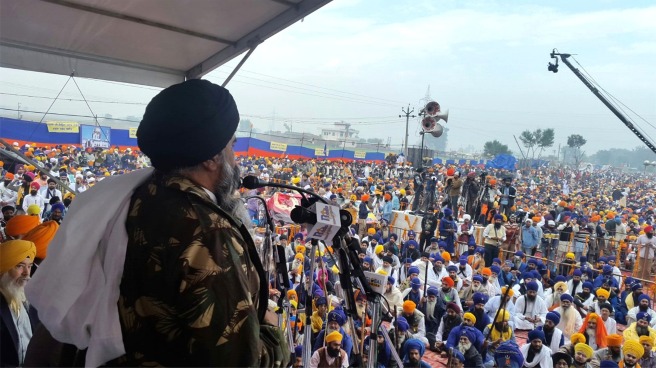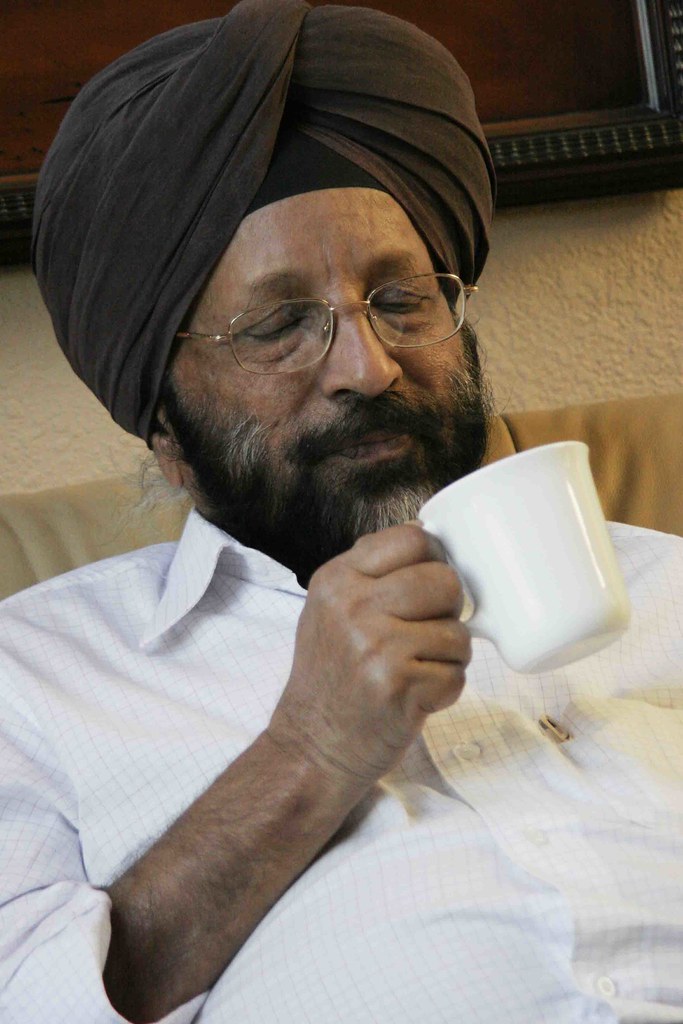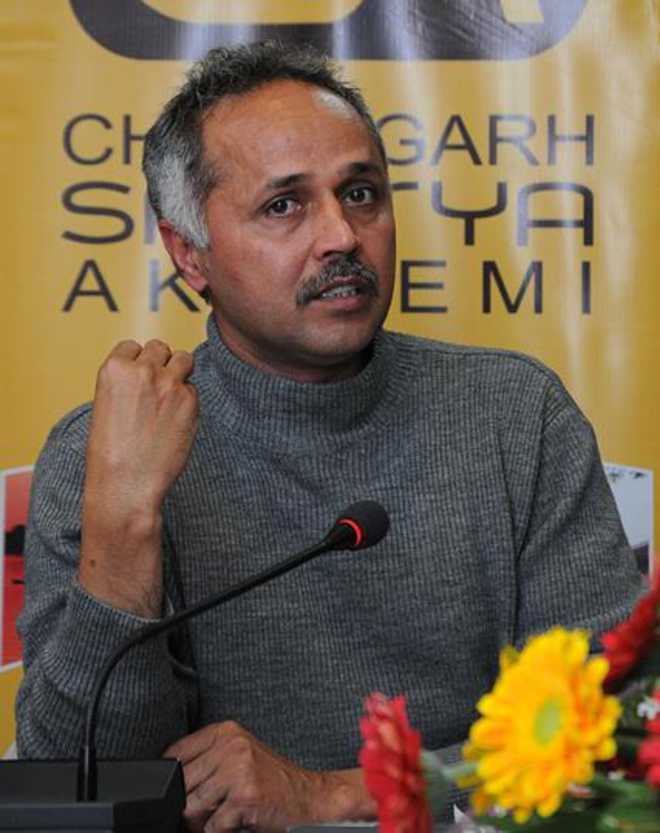Daljit Ami
 In 2012, at the inaugural lecture of the all India convention on ‘Sedition and other anti-people laws’, the secretary of People’s Union of Civil Liberties, Pushkar Raj said, A law should create a social framework for individual freedoms to be realised. The State is only an institution through which law flows; it cannot use law to perpetuate itself. The law on sedition serves the state and not the community. It has become the slave of the State turning against society and therefore it poses serious problems for the functioning of democracy in our country.’ In the past two years the BJP and its activists habitually impose terms like ‘anti-national’, ‘Hindu hater’, ‘naxalite’ on anyone who opposes them. On social media it is easy to term such people as ‘traitors’ or ‘anti-religious’ and abuse them. Given the abuse of these terms by the bullies, the taunted people now say that being called anti-national is no longer a bad thing.
In 2012, at the inaugural lecture of the all India convention on ‘Sedition and other anti-people laws’, the secretary of People’s Union of Civil Liberties, Pushkar Raj said, A law should create a social framework for individual freedoms to be realised. The State is only an institution through which law flows; it cannot use law to perpetuate itself. The law on sedition serves the state and not the community. It has become the slave of the State turning against society and therefore it poses serious problems for the functioning of democracy in our country.’ In the past two years the BJP and its activists habitually impose terms like ‘anti-national’, ‘Hindu hater’, ‘naxalite’ on anyone who opposes them. On social media it is easy to term such people as ‘traitors’ or ‘anti-religious’ and abuse them. Given the abuse of these terms by the bullies, the taunted people now say that being called anti-national is no longer a bad thing.
In recent days, the government has charged the organisers of the recent Sarbat Khalsa in Punjab with sedition laws. It is important to list the chronology of events before we get to the sedition charges. The Punjab government has remained incapable of containing the incidents of sacrilege of the Guru Granth Sahib. It failed in its duty to even take steps to build trust and prevent such incidents in the future. The arrest of two innocents has become a real headache for the government. No one is named in the First information Report of the shooting by the police on innocent protestors. When a police force, which people do not trust, pushes sedition charges on the organizers of a community gathering, it reveals the police’s anxiety. Whatever be the provocation, the resolutions of the meeting, how much ever they might have troubled the government, slapping sedition charges on the organizers is a misuse of an archaic law which have no space in a modern democracy.
The sedition laws came into being in India in 1870 when the British were ruling us. England itself has done away with these laws. The arguments for scrapping the laws are important: ‘Sedition is defined in uncertain terms. It was in a particular historical context that no longer holds. The law is archaic in nature. Certain views even if critical and unpopular cannot be criminalized. It has a chilling effect on free speech.’
The Indian government, however, has used these laws liberally. Thirty activists questioning the envoronmental impacts of Nuclear Plant from Koodankulam were arrested under these laws. 2500 other activists have been implicated under the same offence. In Haryana, leaders of the Bharti Kissan Union (BKU) have been charged with the same laws from time to time. In Punjab, the same laws have been used against BKU (Krantikari) leader Surjit Phul, Krantikari Pendu Mazdoor Union leaders Sanjeev Mintu and Dilbag Singh, and Communist Party of India (Maoist) Harbinder Jalal. In all such cases, nothing could be proved in the courts but the bail itself took anything between six months and one and a half years.
The intent of sedition charges is clear: the rulers want to keep the activists tangled and through them the government demonstrates its political vendetta towards the opponents. Often the police file such charges without necessary clearances. This deficit in a sedition case is often revealed when it comes up for hearing, after the charge sheet has been filed. Until then, at least three months pass. Many times the police do not even file the charge sheet. In the meantime the defendant runs from pillar to post, suffers and is thus penalized for no good reason. Sedition charges are a weapon in the hands of the police and governments which they use against citizens disregarding the civil, human, democratic and constitutional rights of the citizenry.
In Punjab the government has used a new method in the last few years. Earlier protestors were booked under a preventive law – Indian Penal Code Section 751. Now-a-days protestors are charged under IPC Section 307 – intent to murder.Farmer, worker, employee and student organizations are now habitually charged under this IPC. In the continuous struggle for one third of panchayati land to dalits in villages, at least fifty activists have spent at least forty days in jail under this act. The same act has been used on farmer union leaders. Post investigations, the government revoked all these charges but there has been no explanation for the harassment, the inconvenience to the defendants and their families and society. Even after the now infamous Orbit bus episode in Moga, the charges against the protesting students was intent to murder. Nine students were held in jail for three months with no charge sheet. Though now the government has revoked the intent to murder, the other cases are pending. Revoking charges is an old tactic of the governments.
In Punjab the government has used a new method in the last few years. Earlier protestors were booked under a preventive law – Indian Penal Code Section 751. Now-a-days protestors are charged under IPC Section 307 – intent to murder.Farmer, worker, employee and student organizations are now habitually charged under this IPC. In the continuous struggle for one third of panchayati land to dalits in villages, at least fifty activists have spent at least forty days in jail under this act. The same act has been used on farmer union leaders. Post investigations, the government revoked all these charges but there has been no explanation for the harassment, the inconvenience to the defendants and their families and society. Even after the now infamous Orbit bus episode in Moga, the charges against the protesting students was intent to murder. Nine students were held in jail for three months with no charge sheet. Though now the government has revoked the intent to murder, the other cases are pending. Revoking charges is an old tactic of the governments.
It is by pressing such sedition charges that a government announces its war on the people. There is a long list of such sedition charges: MISA, TADA, POTA, and UAPA. .Under a law like TADA, the conviction rate is under one per cent people of those charged until now. In these cases most of them are convicted because of inadequate legal defence and the benefit of doubt has gone to prosecution to satisfy the ‘collective consciousness.’ Under these extraordinary laws the defendant has to prove his/her innocence thus inverting a cardinal principal of modern law: innocent until proven guilty. The prosecutor does not have to prove the charge; instead the defense has to prove innocence.
Through statistics it can be easily proven that such cases are meant to trouble the activists and innocents. Governments and police have thus made a joke out of the legal system. By slapping such charges against the organisers of the Sarbat Khalsa the government has betrayed its intent. There can be many questions on the procedures and resolutions of the Sarbat Khalsa, but the charges are completely out of place. Even without these questions, the wording of the resolutions leaves a lot of space for a fearless investigation but to slap archaic laws like sedition does not cover the trust deficit the people have in the government. What place does such a government and law have in civilized society? The government has failed to put its finger on the people’s nerve. How can such a government hide its failure behind a curtain of repression?
If raising a voice against nepotism, corruption and political interference in religious matters is treason then it is a proud treason. Every conscientious, curious person who is a believer in justice must raise his/her voice against such repression. Count us (the writer and translator) among them.
Translated by Amandeep Sandhu, a writer.









